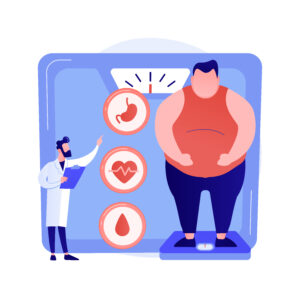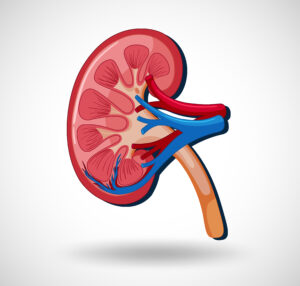Protein, a macronutrient essential for the human body, has gained immense popularity in recent years, especially in the weight loss industry. It’s lauded for its ability to help with weight loss, improve metabolism, and support hair and nail growth. However, the adage “too much of a good thing” holds true for protein as well. Overconsumption of protein can lead to various health issues and trigger adverse effects on the body. In this blog post, we’ll delve into the side effects of consuming too much protein and explore the delicate balance required for optimal health.
The Protein Craze: A Brief Overview
Protein is often hailed as the “building block” of the human body, and for good reason. It plays a crucial role in muscle repair and growth, hormone production, and immune function. Given its importance, it’s no surprise that protein has become a focal point in the quest for weight loss and overall health improvement.
High-protein diets have gained traction, promising quick weight loss and improved metabolic rates. However, the emphasis on protein consumption has led to a misconception that more is always better. This mindset has led many to over-consume protein, often without considering the potential repercussions.
The Downside of Excessive Protein Intake
1. Weight Gain
Ironically, one of the primary reasons people increase their protein intake is to lose weight. However, excessive protein consumption can lead to the opposite effect—weight gain. When the body receives more protein than it needs, the excess is stored as fat, contributing to weight gain.

2. Constipation
High-protein diets typically entail a reduction in fiber and carbohydrate intake. This lack of essential nutrients can lead to constipation. Ensuring proper hydration and adequate fiber intake can help mitigate this issue.
3. Kidney-Related Problems
The kidneys play a crucial role in processing protein. When you consume an excessive amount of protein, the kidneys are forced to work harder, potentially leading to kidney damage. Symptoms of kidney-related issues include frequent urination, fatigue, poor appetite, and swelling in the legs and ankles.

4. Calcium Loss
High-protein diets can lead to calcium loss, which is detrimental to bone health and may increase the risk of osteoporosis.
5. Bad Breath
Following a carb-restricted, high-protein diet can sometimes lead to bad breath. This is due to the production of ketones, which can cause a distinct odor. Increasing water intake, chewing gum, and maintaining good oral hygiene can help alleviate this issue.
Striking the Right Balance
While protein is undoubtedly essential for overall health, it’s crucial to consume it in moderation. The recommended dietary allowance (RDA) for protein varies depending on factors such as age, gender, and activity level. As a general guideline, adults should aim for 0.8 grams of protein per kilogram of body weight per day. Athletes and individuals engaged in intense physical activity may require higher protein intake.
It’s also important to consider the source of protein. Opt for lean sources such as poultry, fish, legumes, and tofu, and limit consumption of processed meats and high-fat dairy products.
Conclusion
Protein is undoubtedly vital for the human body, but like many things in life, balance is key. Consuming too much protein can lead to a host of health issues, including weight gain, constipation, kidney-related problems, calcium loss, and bad breath. It’s essential to strike a balance and consume protein in moderation, focusing on lean sources and meeting the recommended dietary allowance.
FAQs
- What is the recommended dietary allowance (RDA) for protein?
The RDA for protein varies depending on factors such as age, gender, and activity level. As a general guideline, adults should aim for 0.8 grams of protein per kilogram of body weight per day. - What are some lean sources of protein?
Lean sources of protein include poultry, fish, legumes, and tofu. - Can consuming too much protein lead to weight gain?
Yes, excessive protein consumption can lead to weight gain as the body stores excess protein as fat. - What are the symptoms of kidney-related problems due to excessive protein intake?
Symptoms may include frequent urination, fatigue, poor appetite, and swelling in the legs and ankles. - What can I do to mitigate bad breath caused by a high-protein diet?
Increasing water intake, chewing gum, and maintaining good oral hygiene can help alleviate bad breath caused by a high-protein diet.
Disclaimer: The information provided in this article is for educational and informational purposes only. It is not intended as a substitute for professional medical advice, diagnosis, or treatment. Always seek the advice of your physician or other qualified health provider with any questions you may have regarding a medical condition.
- for more exciting news visit-www.com373news.com
- BOOKS written by author-i)love beyond age